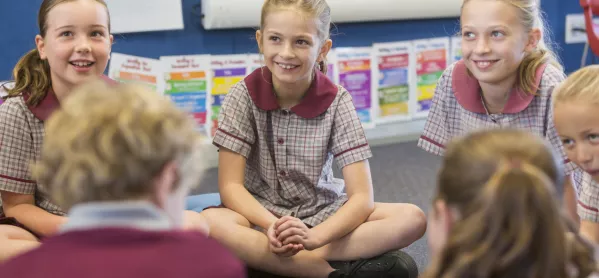There’s no doubting that the past couple of weeks have been very different.
For those of us in school last week, we found ourselves in the strange position of small numbers in large buildings, a majority of staff working from home, and a fairly random collection of pupils from different classes, of all different ages, whom we had to keep safe and productively occupied.
Some schools might have taken the approach of mimicking normality: English lessons every morning, maths before lunch, PE twice a week. They might even have tried to maintain a similar level of structure for the pupils working from home. And good luck to them.
For many of us, that wasn’t an option. If your class consists of 17 pupils from Reception to Year 6, then even a great picture book isn’t going to provide you with perfect content for everyone.
And the practicalities of online learning for many families - perhaps even most - are not straightforward. For years, we have wondered why so many children have internet-enabled devices freely available to them; we can’t now bemoan the fact that many of them don’t.
Coronavirus: Schools making the best of a difficult situation
So what to do? For the children at home, it can only ever be a best-attempt offer. We can make things available to them, encourage and cajole, reward - and maybe even attempt a sanction. But, in truth, we are reliant on their parents to take a lead here.
And what of the children still in our care? Like many schools, our numbers dropped over the course of the first week, as restrictions in the outside world became more severe, families found alternatives and parents started working from home.
We’re left with a core of key-worker children: children whose parents are heading off to do battle with the virus, whether that’s on the frontline of the NHS or in the supermarkets, themselves now a workplace of high risk.
We could try to continue a normal school day for them. But what then when we all reunite? Topics are on hold, schemes of work frozen in time. There’s no sense in trying to continue regardless. Instead, we have to think again about what might be a valuable use of time together in school.
Actually quite liberating
Once you let go of the national curriculum, and Sats and inspection, it can actually be all quite liberating. It allows us to ask the question: if it weren’t for all those external factors, what would we prioritise?
It’s no surprise that the morning activity session led by Joe Wicks has been doing so well: teachers are almost universally agreed that physical activity is important for our pupils. I suspect that an online lesson studying climate zones and biomes would be significantly less popular.
And other things, never on the curriculum, have come to the fore. Things that might have been common in classrooms 30 years ago, like dice and playing cards, are suddenly back on the agenda - and it’s amazing how many children can’t shuffle a deck.
In all the wonders of modern technology, there is a lot to be said for the basic number skills of playing dominoes or family card games that have long gone by the wayside.
Throw in a good large art project, some atlas and dictionary games, and catching up with daily news via Newsround, and it strikes me that the key-worker children in school are getting a pretty good deal with things that too often otherwise get lost amid the drive to meet targets.
And, dare I say it, it’s actually quite enjoyable for the teachers in school, too. Maybe we should remember that when everyone’s back.
Michael Tidd is headteacher at East Preston Junior School in West Sussex. He tweets @MichaelT1979




